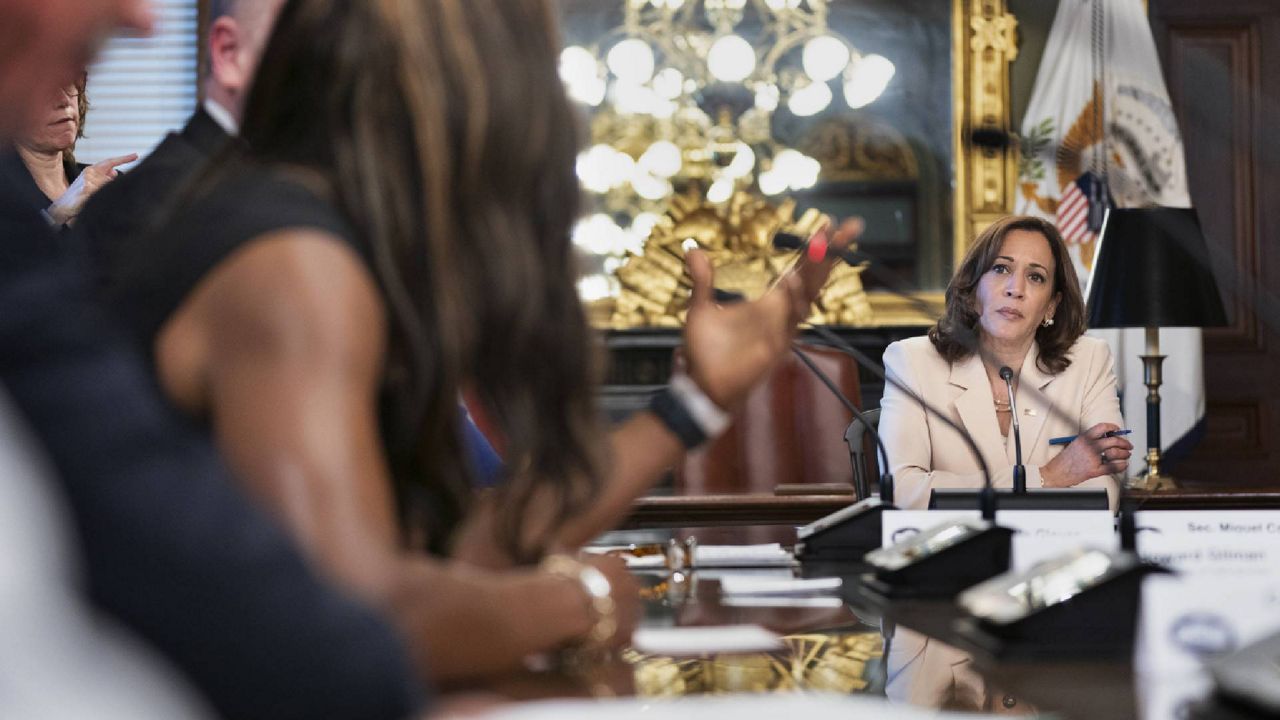Gathered around a table with the vice president on Monday, university and college leaders at the White House urged focus on how the Supreme Court’s abortion ruling could shape — and derail — regular student life on campus, including their long-term health and well-being.
Vice President Kamala Harris, who has been traveling around the country to meet with local leaders on reproductive rights, heard from university presidents and education leaders about how they were preparing ahead of the school year for the fallout of the Supreme Court’s overturning of the right to an abortion.
“Women on college campuses — and this is a sad truth — are three times more likely to experience sexual violence,” Harris explained. “Many [women] may be working, as well, to get themselves through college and pay for tuition in a way that will limit their ability to travel … to where they may receive reproductive health care.”
Ted Mitchell, president of the American Council on Education, told Harris that students, faculty and staff are facing “confusion and uncertainty around a 50-state patchwork quilt of varying laws and guidance” on abortion.
“The clock is ticking on every campus, every university in America to figure out what can and cannot be done to support students … and in particular, to answer the question [of] whether their students do or do not have access to the full range of reproductive health care,” he added.
Restrictions on abortion often weigh more heavily on young women of color, noted Howard University President Wayne Frederick, especially because Black women are two to three times more likely to die in pregnancy or childbirth. More than 70% of Howard students are women, he added.
“We must all agree that reproductive health must be made safer for Black women. And we must do more to support Black women’s choices,” he said.
Frederick said Howard’s campus was made up of students from 46 states, which means another concern is navigating school support for out-of-state students, including those who come from places where “aiding and abetting” an abortion is illegal.
Dr. Howard Gilman, chancellor of the University of California, Irvine, agreed, saying his staff expect a “huge surge” in out-of-state students seeking reproductive care.
“We are very worried about the existing legal protections for our out-of-state patients and especially for our out-of-state students who use our student health facilities,” he said.
“Because the privacy protections around those student health facilities are different than the privacy protections that you see in other clinical settings.”
Health records on campuses are protected under the federal privacy law FERPA instead of the broader HIPAA protections, though any release of records still requires student or parent permission except in emergency cases.
Other college leaders said unwanted pregnancies could “derail” students’ education altogether, since accessing reproductive care can be an impossible choice for women with a lower socioeconomic status.
Félix Matos Rodríguez, chancellor of the City University of New York, said around 40% of CUNY’s community colleges were students from that sector.
“An unwanted pregnancy can be one of the things that derails higher education. It’s one of the classic issues for students dropping out,” he said.
Vice President Harris has previously met with dozens state legislators on reproductive rights, and President Joe Biden has signed two executive orders partly aimed at protecting pregnant women’s rights to medication abortion, emergency medical care and to travel for reproductive care.



